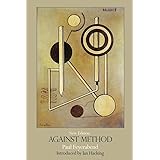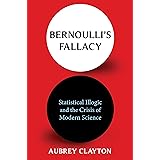
Enjoy fast, free delivery, exclusive deals, and award-winning movies & TV shows with Prime
Try Prime
and start saving today with fast, free delivery
Amazon Prime includes:
Fast, FREE Delivery is available to Prime members. To join, select "Try Amazon Prime and start saving today with Fast, FREE Delivery" below the Add to Cart button.
Amazon Prime members enjoy:- Cardmembers earn 5% Back at Amazon.com with a Prime Credit Card.
- Unlimited Free Two-Day Delivery
- Streaming of thousands of movies and TV shows with limited ads on Prime Video.
- A Kindle book to borrow for free each month - with no due dates
- Listen to over 2 million songs and hundreds of playlists
- Unlimited photo storage with anywhere access
Important: Your credit card will NOT be charged when you start your free trial or if you cancel during the trial period. If you're happy with Amazon Prime, do nothing. At the end of the free trial, your membership will automatically upgrade to a monthly membership.
Buy new:
-20% $27.81$27.81
Ships from: Amazon Sold by: ayvax
Save with Used - Very Good
$23.12$23.12
Ships from: Amazon Sold by: Visaby express

Download the free Kindle app and start reading Kindle books instantly on your smartphone, tablet, or computer - no Kindle device required.
Read instantly on your browser with Kindle for Web.
Using your mobile phone camera - scan the code below and download the Kindle app.

OK
 Audible sample Sample
Audible sample Sample 


The Logic of Scientific Discovery (Routledge Classics) 2nd Edition
Purchase options and add-ons
Described by the philosopher A.J. Ayer as a work of 'great originality and power', this book revolutionized contemporary thinking on science and knowledge. Ideas such as the now legendary doctrine of 'falsificationism' electrified the scientific community, influencing even working scientists, as well as post-war philosophy. This astonishing work ranks alongside The Open Society and Its Enemies as one of Popper's most enduring books and contains insights and arguments that demand to be read to this day.
- ISBN-109780415278447
- ISBN-13978-0415278447
- Edition2nd
- Publication dateFebruary 21, 2002
- LanguageEnglish
- Dimensions5.08 x 1.23 x 7.8 inches
- Print length544 pages
Frequently bought together

Similar items that may ship from close to you
Editorial Reviews
Review
`One of the most important documents of the twentieth century.' - Sir Peter Medawar, New Scientist
`One cannot help feeling that, if it had been translated as soon as it had been originally published, philosophy in this country might have been saved some detours. Professor Popper's thesis has that quality of greatness that, once seen, it appears simple and almost obvious' - Times Literary Supplement
'One of the most important documents of the twentieth century.' – Peter Medawar, New Scientist
About the Author
Product details
- ASIN : 0415278449
- Publisher : Routledge; 2nd edition (February 21, 2002)
- Language : English
- Paperback : 544 pages
- ISBN-10 : 9780415278447
- ISBN-13 : 978-0415278447
- Item Weight : 1.28 pounds
- Dimensions : 5.08 x 1.23 x 7.8 inches
- Best Sellers Rank: #447,084 in Books (See Top 100 in Books)
- #293 in Philosophy of Logic & Language
- #444 in Food Science (Books)
- #1,398 in History & Philosophy of Science (Books)
- Customer Reviews:
About the author

Discover more of the author’s books, see similar authors, read author blogs and more
Customer reviews
Customer Reviews, including Product Star Ratings help customers to learn more about the product and decide whether it is the right product for them.
To calculate the overall star rating and percentage breakdown by star, we don’t use a simple average. Instead, our system considers things like how recent a review is and if the reviewer bought the item on Amazon. It also analyzed reviews to verify trustworthiness.
Learn more how customers reviews work on Amazon-
Top reviews
Top reviews from the United States
There was a problem filtering reviews right now. Please try again later.
First, Popper is often seen as advocating a skeptical way of life--the principle of falsification is made to mean that one should always try to falsify one's one own theories and worldview. There may be some support for this philosophy in the Open Society but not in the Logic of Scientific Discovery. Here, Popper is explicit that he is not proffering a philosophy of life but a methodology for science.
Another related misconception is that Popper does not contend that his logic is the way science has historically progressed. The Logic of Scientific Discovery is explicit that it is normative. It argues not how science has progressed but how it should progress. The fact that Popper was so personally authoritarian that the line among his students was that his other major work should have been called "The Open Society by One of Its Enemies" seems eerily consistent with a philosophy professor dictating to scientists how they should conduct their work.
And here is where I find the work someone dated. Popper argues against the inductivism epitomized by John Maynard Keynes but seems oblivious to the work of statisticians like Ronald Fisher. Fisher, with his method of randomized experimentation was able to show the validity of inductive causal inferences. In the 1970s statisticians like Rubin extended these inductive arguments to observational studies. Meta-analyses using Bayesian inference have also shown then value of induction. Obviously, Popper cannot be held responsible for not recognizing the Rubin causal model. His inattention to Fisher, however, is troubling since he was a contemporary.
Most social science continues to progress within the Fisher/Neyman framework along with Bayesian advances. To be honest, Popper's work in this domain can seem as passé as the inductivism of Keynes.
That the Logic is a work of genius is indubitable. I would argue, however, that falsification is not the one valid method for science. A fortiori it is not a philosophy of life all human beings must follow.
Don't get me wrong, it's readable, but there's no indents on the paragraphs and there's huge spaces between what I guess are paragraphs? Too me this looks unprofessional and lazy. I've seen better formatted books in the free section of Amazon. I gave the book five stars only because Amazon doesn't separate the reviews of the E Books from the hard copies and the book itself is a classic.
I honestly wanted my money back but there's no way to do that that I know of.
I recommend you download a sample of this book to your kindle first before you buy it. You may not feel as annoyed by it as I do. Personally, I'll be checking the samples of every E Book I buy from this point on since this was a huge waste of money in my eyes.
Top reviews from other countries
There is no way to know a priori whether Popper’s falsifiability is an inherent property of the theory or a property of human capabilities. A theory can be unfalsifiable within the current state of knowledge, technology and experimental capabilities but can become falsifiable, thus scientific, with technological progress years or centuries later. We can have therefore a “conditional falsifiability” upon the condition that a gap in our knowledge will be filled at some point in the future. In our testing of the theory we should err on the safe side, that is the side that favors the theory and views falsifiability as a property of human capabilities.
This is not just stimulating reading, it is a "must read" for anyone engaged in scientific work.












